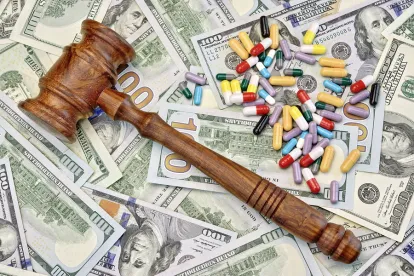On January 9th, the Senate Committee on Finance conducted its nomination hearing of Alex Michael Azar II, President Trump’s nominee for Secretary of Health and Human Services. Under President George W. Bush, Mr. Azar served in HHS, first as general counsel to HHS and then as deputy secretary. Mr. Azar was more recently an executive at Eli Lilly and Company. As summarized here, Mr. Azar received many questions regarding Medicaid, CHIP, the Affordable Care Act, and most notably and often, drug prices.
As referenced many times during Senators’ questions, Mr. Azar held high positions within Eli Lilly and while there, the price for certain Lilly drugs increased. These past positions led to many questions regarding how Mr. Azar intended to address drug prices and whether Medicare should set a single drug formulary. Given his experience in HHS while Medicare Part D was established and implemented, it is not surprising that Mr. Azar explained that he is not in favor of a single drug formulary, and instead, supported using pharmacy benefit managers (“PBMs”) as the most effective way to drive down drug costs. Mr. Azar also stated that PBMs should have a role in negotiating for Medicare Part B drugs. If this suggestion was implemented, it would be a significant change for the Medicare program and could possibly increase drug price competition in Medicare Advantage.
Unlike Part D drug prices that are subject to the negotiations struck by (a) Part D plan sponsors and/or their PBMs and pharmacies (for drug prices) and (b) Part D plan sponsors and/or their PBMs and manufacturers (for drug rebates), Medicare Part B drug prices under original fee-for service Medicare are not negotiated. Medicare Part B drugs are typically physician administered. The Medicare Part B reimbursement paid to physicians for most Part B drugs is equal to 106 percent of the volume-weighted Average Sales Price (“ASP”) for the drug. ASP is a regulatory defined term and is reported by manufacturers quarterly. In most instances, when Medicare Part B drugs are dispensed to a Medicare beneficiary, manufacturers do not pay rebates.
If PBMs were engaged to negotiate rebates on Part B drugs under original Medicare, the Medicare program could potentially see significant savings. Obviously Mr. Azar’s comment was only a suggestion in a hearing, not set policy, but many things would have to be addressed prior to PBMs negotiating for original Medicare. Most notably, would a PBM be engaged to negotiate for the entire country or would multiple PBMs be engaged to each represent a Medicare region (similar to MACs) and negotiate for a region?
Some manufacturers do pay rebates on Part B drugs to some Medicare Advantage Organizations (not original Medicare). In these instances, the rebates are still typically not in line with rebates paid under Part D because Medicare Advantage plans are not able to adopt a formulary for Part B drugs, although they can use prior authorizations in certain cases. If Medicare Part B drug pricing policy adapted to be more in-line with Part D drug pricing, we would anticipate that Part B drugs would be placed on a formulary and for rebates for such drugs to increase.
It is worth noting that the Part B drug reimbursement system has been the subject of multiple government reports from the OIG (here and here) and MedPac, has been the subject of attempted reform, and has been recently changed under the 340B program.




 />i
/>i

